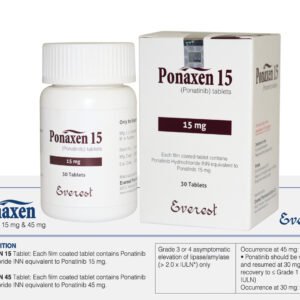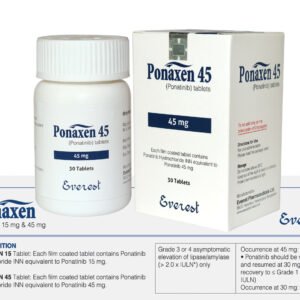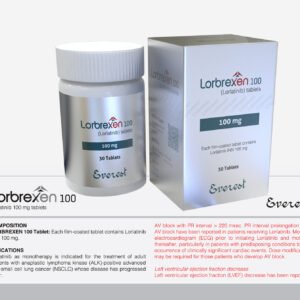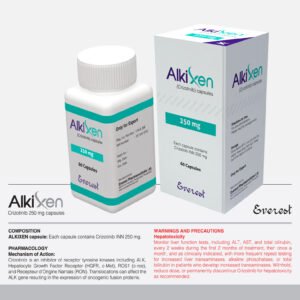Description
Buy Vidaza (Azacitidine INN) 300 mg Online
Indication of Vidaza (Azacitidine INN) 300 mg : Azarest, containing Azacitidine as the International Nonproprietary Name (INN), is used to treat adult patients diagnosed with intermediate-2 and high-risk myelodysplastic syndromes (MDS), including chronic myelomonocytic leukemia (CMML).
Pharmacology: Azacitidine, a nucleoside metabolic inhibitor, acts as a demethylating agent. It incorporates into DNA and RNA, resulting in DNA hypomethylation and direct cytotoxic effects on abnormal hematopoietic cells, including those in MDS.
Dosage and Administration: The recommended dose of Azarest is 300 mg given subcutaneously or intravenously once daily for 7 days, followed by a 21-day rest period. This 28-day cycle is repeated as long as the patient benefits from treatment or until unacceptable toxicity occurs.
Interactions: Azarest may interact with drugs excreted renally or affecting renal function. Avoid co-administration with nephrotoxic agents and use caution with drugs causing myelosuppression or impacting hepatic function.
Side Effects: Common side effects include nausea, vomiting, diarrhea, fatigue, anemia, thrombocytopenia, neutropenia, injection site reactions, and fever. Serious adverse reactions may include bone marrow suppression, febrile neutropenia, pneumonia, and renal impairment.
Precautions and Warnings:
- Patients should be closely monitored for signs of myelosuppression, including infections, bleeding, and fatigue, with dose adjustments or treatment interruptions as needed.
- Regular renal function assessments are recommended before and during Azarest therapy.
- Patients with liver issues may need dosage adjustments, with periodic liver function monitoring.
- Effective contraception is crucial during treatment due to potential fetal harm, and pregnancy should be avoided.
- Monitoring for tumor lysis syndrome, particularly in the initial treatment cycle, is advised.
Overdose Effect: In the event of overdose, provide supportive care. There’s no specific antidote; monitor for signs of myelosuppression and other adverse reactions, initiating appropriate symptomatic treatment as necessary.





